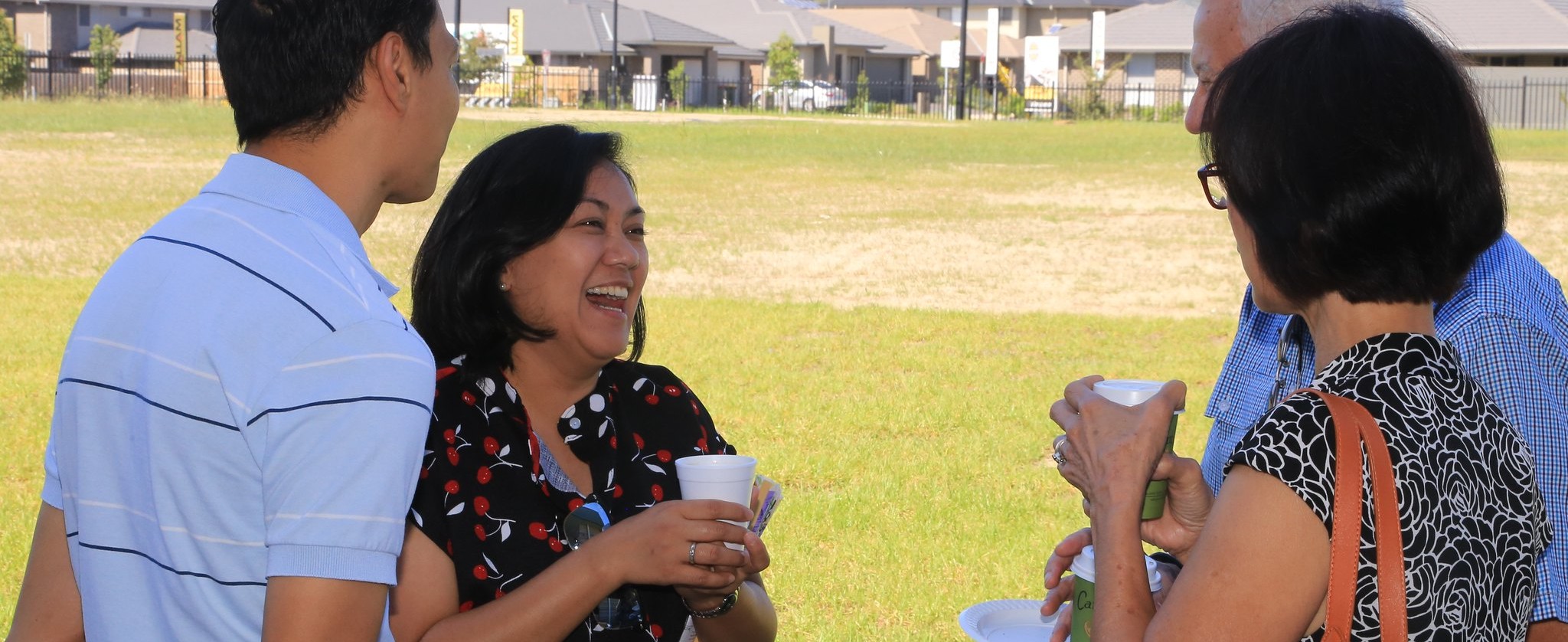The RCIA Is Not a Program: Welcoming Enquirers All Year Round
National Liturgical Council

Parish celebrations of the Easter Triduum are always profound moments of joy, especially when they include the Christian initiation of adults. The witness of these newly baptised and confirmed often inspires others in the assembly—prompting them to ask questions, make contact, or even express a desire to become Catholic themselves.
Yet too often, these enquirers are met with unexpected obstacles.
When Interest Meets a Closed Door
Too often, people have contacted their local parish full of interest and curiosity only to be told, “The RCIA process doesn’t begin until September”, or in some cases, “We’re not running RCIA this year.”
Sometimes these individuals try again with another parish nearby, only to receive a similar response In many instances, an enquirer does not have the courage or inclination to return several months later to join a formal RCIA group. Others are disheartened by the perceived lack of welcome and the apparent difficulty of the process. Their curiosity fades.
This is not the fault of any one person or team. Most parishes are under pressure, and many RCIA teams are stretched thin or reliant on the same faithful volunteers each year. But the solution is not necessarily more meetings or more catechists.
What’s needed is a parish-wide culture of welcome—an openness to accompany enquirers as soon as they make themselves known. This doesn’t need to be overwhelming. In fact, it can be simple, natural, and deeply pastoral.
First Steps: A Parish Response
Every enquirer deserves to be met with warmth, interest, and a sense of belonging. This can begin with a simple human gesture: an invitation to meet for a coffee and a conversation.
The parish secretary, priest, or pastoral associate might help connect the enquirer with a parishioner willing to meet informally, perhaps someone who could become their sponsor, or at least accompany them through the early stages of discernment. No formal program is needed at this point. What matters is relationship and presence.
Sponsors play a crucial but manageable role. They are not catechists or theologians. They are companions who help draw the enquirer into the life of the parish, inviting them to Mass, answering questions, introducing them to others, and perhaps connecting them with groups or ministries that align with their stage of life or interests.
For example:
- A young mother might be welcomed into the parish playgroup.
- A teenager might meet members of the youth group.
- A person with a heart for service could be introduced to the St Vincent de Paul team or a local outreach ministry.
Many parishioners would gladly take on this role for a few months—even if they cannot commit to a year-long process or weekly catechesis. It is simply about walking alongside someone who is seeking Christ and community.
The Journey Continues: Faith, Formation, and Belonging
When a more formal learning process begins, often in the months leading to Lent, then catechists and RCIA teams can offer structured sessions to support both catechumens and candidates. But this catechesis is only one part of the overall journey.
The Rite of Christian Initiation of Adults reminds us that initiation is not a program to be completed but a gradual process, grounded in the life of the local community:
“The initiation of catechumens is a gradual process that takes place within the community of the faithful. By joining the catechumens in reflecting on the value of the paschal mystery and by renewing their own conversion, the faithful provide an example that will help the catechumens to obey the Holy Spirit more generously” (RCIA 4).
When needed, neighbouring parishes can collaborate—sharing catechists, pooling resources, or forming combined discussion groups. These groups may include both catechumens (unbaptised) and candidates (already baptised and seeking full communion). It’s important, however, to make appropriate ritual distinctions between the two. For instance:
- The Rite of Acceptance into the Order of Catechumens is for the unbaptised, not those already baptised.
- Baptised candidates may celebrate the Sacrament of Penance before being received into the Church; catechumens do not.
- The scrutinies during Lent are celebrated by the elect, not candidates.
Likewise, the Easter Vigil is the appropriate moment for full Christian Initiation (Baptism, Confirmation, and Eucharist). Those already baptised may be received into full communion either later in the Easter season, or at another suitable time when they are ready.
A Living Welcome
The catechumenate is not just a program that runs from September to Easter. It is a journey of conversion and faith, grounded in personal relationships and the life of the parish.
Enquirers are already responding to the prompting of the Holy Spirit. Our task as a Church is to meet them with warmth, openness, and a readiness to walk beside them at any time of year, in any stage of life.
